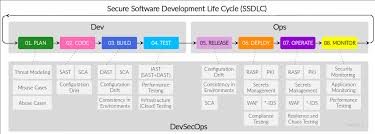Unlocking Success: The Power of Strategic Consultancy in Business Growth
The Importance of Strategic Consultancy in Business
Strategic consultancy plays a crucial role in helping businesses navigate the complexities of the modern market landscape. By providing expert advice and guidance, strategic consultants assist organizations in making informed decisions that align with their long-term goals and objectives.
What is Strategic Consultancy?
Strategic consultancy involves working closely with businesses to analyze their current position, identify opportunities for growth, and develop actionable plans to achieve success. Consultants leverage their expertise in various industries to offer valuable insights and recommendations that can drive sustainable business growth.
The Benefits of Strategic Consultancy
Enhanced Decision-Making: Strategic consultants help businesses make well-informed decisions based on thorough analysis and market research.
Better Resource Allocation: By identifying areas for improvement and optimization, strategic consultancy enables businesses to allocate resources effectively for maximum impact.
Risk Mitigation: Consultants help businesses anticipate potential risks and develop strategies to mitigate them, minimizing unforeseen challenges.
Growth Opportunities: Through strategic planning and implementation, businesses can capitalize on growth opportunities and stay ahead of the competition.
How Strategic Consultancy Works
Strategic consultants typically follow a structured approach to help businesses achieve their objectives:
- Assessment: Consultants assess the current state of the business, including its strengths, weaknesses, opportunities, and threats.
- Analysis: They conduct in-depth analysis to identify key areas for improvement and growth potential.
- Strategy Development: Based on their findings, consultants develop a comprehensive strategy tailored to the specific needs and goals of the business.
- Implementation: Consultants work closely with the business to implement the strategy effectively, monitoring progress and making adjustments as needed.
- Evaluation: After implementation, consultants evaluate the outcomes against predefined metrics to measure success and identify further improvement opportunities.
In Conclusion
Strategic consultancy is an invaluable resource for businesses looking to enhance their competitiveness, drive growth, and achieve long-term success. By leveraging the expertise of strategic consultants, organizations can navigate challenges more effectively and capitalize on opportunities for sustainable development.
Unlocking Success: 5 Advantages of Strategic Consultancy
- Expert Guidance
- Objective Perspective
- Customized Solutions
- Improved Decision-Making
- Enhanced Efficiency
7 Drawbacks of Strategic Consultancy: Cost, Dependency, and Potential Misalignment
- Costly service that may not fit all budgets
- Dependency on external expertise, which can hinder internal skill development
- Potential for conflicts of interest with consultants pushing specific solutions for personal gain
- Risk of strategic misalignment if consultants do not fully understand the business’s unique context
- Time-consuming process that may delay decision-making and implementation
- Difficulty in measuring the tangible impact and ROI of strategic consultancy services
- Possibility of resistance from existing employees who may perceive consultants as a threat
Expert Guidance
Strategic consultants offer a valuable pro through their expert guidance, drawing on their industry knowledge and experience to provide businesses with insightful advice and direction. By leveraging their expertise, strategic consultants can offer tailored solutions that align with the specific needs and goals of each organization, helping them make informed decisions and navigate complex business challenges with confidence.
Objective Perspective
One key benefit of strategic consultancy is the objective perspective it provides. Consultants offer an unbiased viewpoint, enabling businesses to gain new insights and perspectives on their opportunities and challenges. By bringing a fresh angle to the table, consultants help organizations see beyond their internal biases and preconceptions, allowing them to make more informed decisions that align with their long-term goals. This objective viewpoint can be instrumental in identifying innovative solutions and unlocking hidden potential within the business.
Customized Solutions
Strategic consultancy stands out for its ability to provide customized solutions that precisely target and address the unique needs and objectives of each business. By offering tailored strategies and recommendations, strategic consultants ensure that their clients receive personalized guidance that aligns with their specific challenges and goals. This personalized approach not only enhances the effectiveness of the solutions but also fosters a deeper level of engagement and commitment from the business in implementing strategic initiatives.
Improved Decision-Making
One key benefit of strategic consultancy is the significant improvement in decision-making that it offers to businesses. By meticulously analyzing data and market trends, consultants provide valuable insights that enable organizations to make well-informed decisions. This proactive approach not only enhances the quality of choices made but also increases the likelihood of achieving successful outcomes in a rapidly evolving business environment.
Enhanced Efficiency
By optimizing processes and resource allocation, strategic consultancy plays a vital role in enhancing efficiency within businesses. Through expert analysis and strategic planning, consultants identify inefficiencies and implement tailored solutions to streamline operations. By improving workflow processes and ensuring optimal resource allocation, strategic consultancy enables businesses to operate more effectively, ultimately leading to increased productivity and cost savings.
Costly service that may not fit all budgets
One significant drawback of strategic consultancy is its costliness, which may not be feasible for all budgets. Engaging the services of strategic consultants often requires a substantial financial investment, making it a luxury that some businesses, especially small or emerging ones, may struggle to afford. This limitation can hinder access to valuable strategic advice and expertise for organizations operating on tight financial constraints, potentially limiting their ability to benefit from the insights and guidance offered by consultancy services.
Dependency on external expertise, which can hinder internal skill development
Dependency on external expertise in strategic consultancy can create a potential con by hindering the development of internal skills within an organization. Relying heavily on outside consultants for strategic decision-making may limit the opportunity for internal staff to enhance their own knowledge and capabilities. This dependency can lead to a lack of ownership and autonomy in developing and executing strategic initiatives, potentially impeding the growth and skill development of internal teams. Organizations should strike a balance between leveraging external expertise and fostering the growth of internal talent to ensure long-term sustainability and self-sufficiency in strategic planning and implementation.
Potential for conflicts of interest with consultants pushing specific solutions for personal gain
One notable con of strategic consultancy is the potential for conflicts of interest to arise, where consultants may prioritize pushing specific solutions that benefit them personally rather than focusing on the best interests of the client. This can lead to biased recommendations and decisions that may not align with the client’s actual needs or goals. Clients must be cautious and ensure transparency in their engagements with consultants to mitigate such risks and maintain the integrity of the consulting process.
Risk of strategic misalignment if consultants do not fully understand the business’s unique context
One significant con of strategic consultancy is the risk of strategic misalignment when consultants lack a deep understanding of the business’s unique context. Without a thorough grasp of the company’s internal dynamics, industry-specific challenges, and long-term goals, consultants may propose strategies that are not aligned with the organization’s vision or capabilities. This can lead to ineffective implementation, wasted resources, and missed opportunities for sustainable growth. To mitigate this risk, it is essential for consultants to invest time in comprehensively understanding the intricacies of the business they are advising, ensuring that their recommendations are tailored to address the specific needs and circumstances of the organization.
Time-consuming process that may delay decision-making and implementation
One significant drawback of strategic consultancy is that it can be a time-consuming process, potentially leading to delays in decision-making and implementation. The thorough analysis, planning, and collaboration involved in strategic consultancy require a considerable amount of time and effort from both the consultants and the business stakeholders. This extended timeline may hinder the organization’s ability to respond quickly to market changes or capitalize on emerging opportunities, ultimately impacting its competitive edge. Additionally, delays in decision-making and implementation could result in missed windows for innovation or growth, highlighting the need for a balance between thorough strategic planning and timely execution.
Difficulty in measuring the tangible impact and ROI of strategic consultancy services
One significant con of strategic consultancy services is the challenge in measuring the tangible impact and return on investment (ROI) that these services provide. Unlike more tangible investments where results can be easily quantified, the outcomes of strategic consultancy are often complex and long-term in nature, making it difficult to attribute specific financial gains directly to the consultancy services. This lack of clear measurement can create uncertainty for businesses seeking to evaluate the effectiveness and value of their investment in strategic consultancy, potentially hindering their ability to justify continued engagement with consultants.
Possibility of resistance from existing employees who may perceive consultants as a threat
One significant con of strategic consultancy is the potential for resistance from existing employees who may perceive consultants as a threat to their roles or expertise. When outside consultants are brought in to assess and advise on strategic matters, it can create a sense of insecurity among the workforce, leading to resistance and reluctance to collaborate. Employees may fear that consultants could recommend changes that threaten their job security or challenge their established practices. This resistance can hinder the effectiveness of strategic consultancy initiatives and impede the successful implementation of recommended strategies within the organization.











